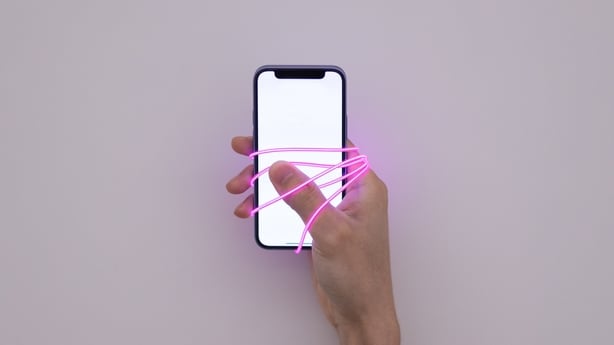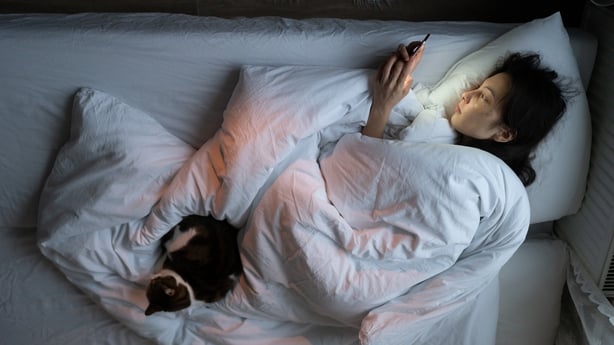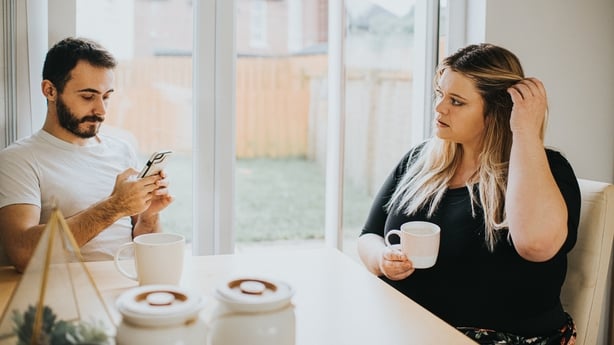Sex therapist Rachel Cooke joined Jennifer Zamparelli on 2fm to discuss the rise of AI and chat bots in the dating world, and why people are turning to artificial intelligence for their romantic needs. Listen back above.
AI and chat bots have revolutionised how we live our lives, from planning fitness routines to helping us with work queries. So it was only a matter of time before it revolutionised the world of sex and dating.
For as long as technology has advanced, so too has its potential for dating, from chat rooms in 90s films like You've Got Mail, to the dating apps many of us scroll through over our morning coffees or commutes. The difference here, of course, is that the person on the receiving end of your advances is not real.
"What we're finding is that our brains basically can't really tell the difference", Cooke said. "Part of you knows that it's not real, but you're still getting the boost from it, you're getting all the good feelings that you can get."

Replika is one of the companies now offering AI-powered chatbots that are designed with an emphasis on empathy and companionship. With over two million users, the company has recently launched Blush, a site strictly for those looking for romantic companionship.
Just as dating apps came with a level of stigma once upon a time, there is bound to be strong reactions to this, Cooke says.
"On one hand, I feel like, look, this is going to happen no matter what now. It doesn't mean you have to be part of it. A bit like online dating, it's something that we thought was absolutely mad that would never happen 20 years ago sort of thing, and now everybody does it. Even 10 years ago there was still a stigma. Even five years ago there was a stigma."
As for how it works, Cooke explains that "some of them will come with kind of prepackaged things, kind of like templates that you can then sort of edit. Some of them allow you to kind of build quite a lot yourself.
"Some people end up designing a partner who is kind of like their dream fantasy person."
What's more concerning is the fact that "about half of people who use it are already in relationships or married, so it's only slightly over", she added. "[I'm] reading about people who are developing their AI girlfriend to look exactly like their wife, but younger and complaining less about them not doing any of the dishes."

Many of these users aren't telling their partners that they're using these chat bots, she said, which adds to "the age old sort of debate over whether you should kind of be allowed to have secrets from your partner.
"That conversation gets to a place where it's like, well, if it's something that is damaging your relationship, then probably your partner does need to know and needs to be able to consent to what you're doing."
It appears that for some people in relationships a need is being met by the chat bots: "They are reporting themselves feeling much less judged, they feel unconditional love from these chat bots, from their AI girlfriend, that they feel so much more listened to, validated, heard, there's no complaints.
"I think it's pretty nuanced here because you could say, right, you're telling all your woes and secrets and whatever to a computer rather than your partner, but also many people would say, well, your partner doesn't necessarily need to hear all your gripes about your crap day at work or whatever was going on."

It could be said that the companies behind these chat bots have recognised a need for greater empathy among users, Cooke said. "They've recognised that although most of us feel lonely and would like more community and connection, most of us are in some ways not really willing to put in the effort and work that it takes when it's so much easier to disappear into a screen.
"Then there are lots of people who are genuinely very lonely and it could be to do with their geographical location, it could be things that have happened to them. There's all sorts of reasons why people can be very lonely in this modern world and AI promises and can deliver on you feeling less lonely."
As always in relationships, greater communication could mitigate some of these issues, whether you're single or in a relationship:
"I think the more that we can destigmatise the idea of that, the better, because stigma generally just leads to shame and secrecy and people doing kind of self destructive and destructive to others behaviours."

